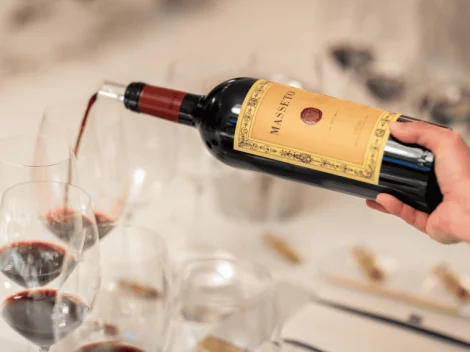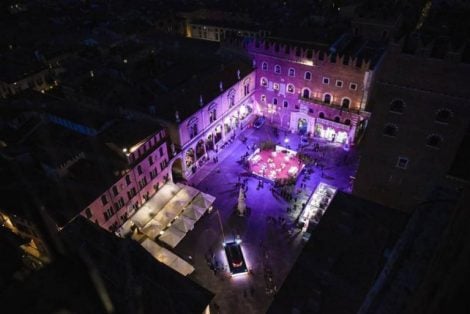One of Copenhagen’s most intriguing restaurants isn’t featured in any Danish gastronomic guides. Beyond the mysteries of guide selections—let the sinless cast the first stone—Tèrra is a venue worth telling stories about. Whether out of patriotic pride (as it’s the brainchild of two Italians) or because it truly stands out in the city, it deserves attention.
Copenhagen’s warm welcome
“In 2014, we opened Il Mattarello, a stall at the Torvehallerne food market focusing on fresh pasta,” recounts Valerio Serino, Lucia De Luca’s partner in both life and business. “Copenhagen is a city where, if you’re young and have a dream, you can bring it to life relatively easily. It allows you to set up a business quickly,” Lucia explains. “At first, we were warmly welcomed—the customers were open-minded, even when it came to trying al dente pasta for the first time. After the lockdown, René Redzepi even paid us a visit, shared a post tagging the pasta shop, and suddenly, our Instagram page started gaining a lot of followers.
However, we felt less warmth when we decided to open Tèrra.”
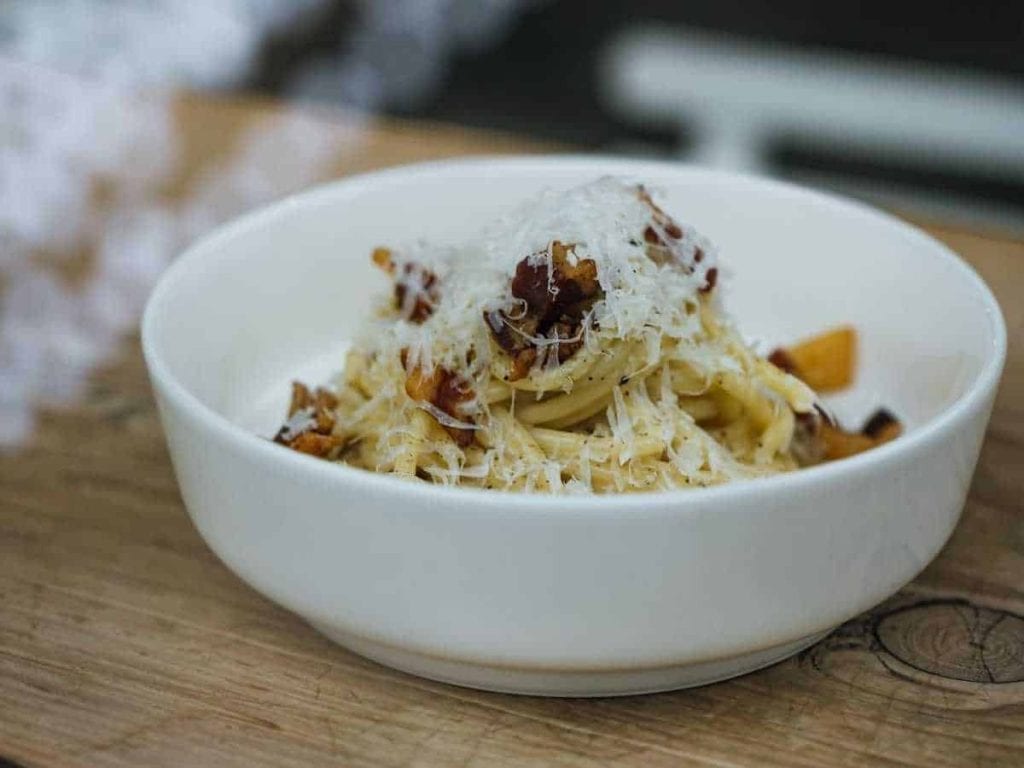
Italian Chefs abroad
In 2017, Valerio and Lucia decided to raise the bar, entering the fine dining scene in Copenhagen with a restaurant that reflected their vision—without local investors (many restaurants in the city are backed by large Danish investors) and avoiding stereotypical Italian cuisine.
“We wanted to represent the new Italian cuisine, borrowing a term from Laura Lazzaroni’s book on the subject. But communicating that vision was challenging. As Italian chefs abroad, customers expect you to serve traditional Italian dishes. Instead, we unsettled them with a type of cuisine they felt was uniquely theirs—but in reality, it represented us Italians too.”
Their concept focuses on telling the story of the land—in this case, the Nordic region—but with an Italian, or at least personal, sensibility that reflects the experiences and memories of the chef, Valerio. “To us, it’s ‘new Italian cuisine,’ but to them, it seemed like we were copying them,” admit the pair, who faced harsh criticism from a prominent Danish food critic accusing them of offering a “patchwork menu” that borrowed elements from Danish-investor-backed restaurants like Alchemist, Noma, and Kadeau.
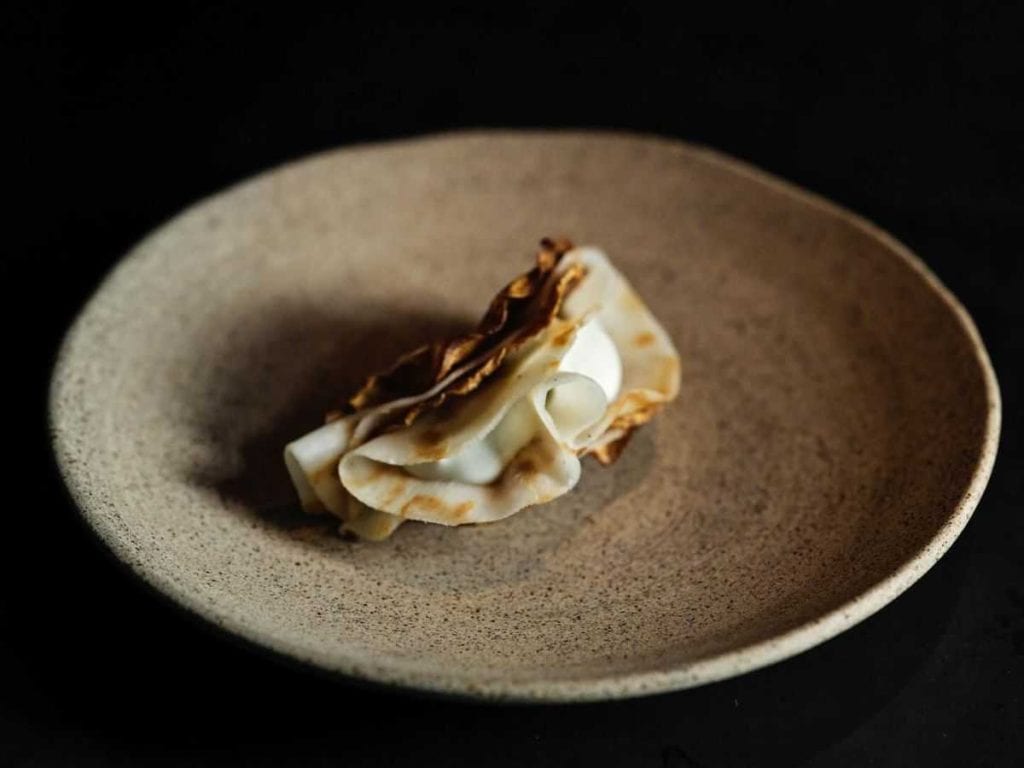
Celeriac Taco
Why Tèrra is an Italian restaurant
This raises the question: What defines Italian cuisine to a foreign audience? Is it enough to serve a dish, an ingredient, or bear an Italian surname to be considered an Italian restaurant? We don’t think so. Nor is it sufficient to stick strictly to traditional recipes or use only Italian ingredients when equally exceptional local products are available.
So what makes Tèrra an Italian restaurant rather than simply a fine dining venue in Copenhagen? “Being Italian restaurateurs in Denmark means telling the story of a landscape with new and different ingredients shaped by its climate,” they explain. “At Tèrra, we wanted to celebrate this landscape by using no more than three ingredients per dish. This apparent simplicity may be what ties us to Italy and the concept of Italian-ness.”
They steer clear of clichéd narratives involving “grandma’s recipes,” but at the same time, they adhere to principles Italian grandmothers instilled: “Respect for the ingredient, seasonality, and waste minimisation, rooted in the idea of ‘nothing goes to waste.’ This has driven our research into using less noble parts of ingredients through innovative techniques. Then there’s hospitality: being Italian means welcoming, pampering, and making guests happy without ever making them feel like mere guests.”
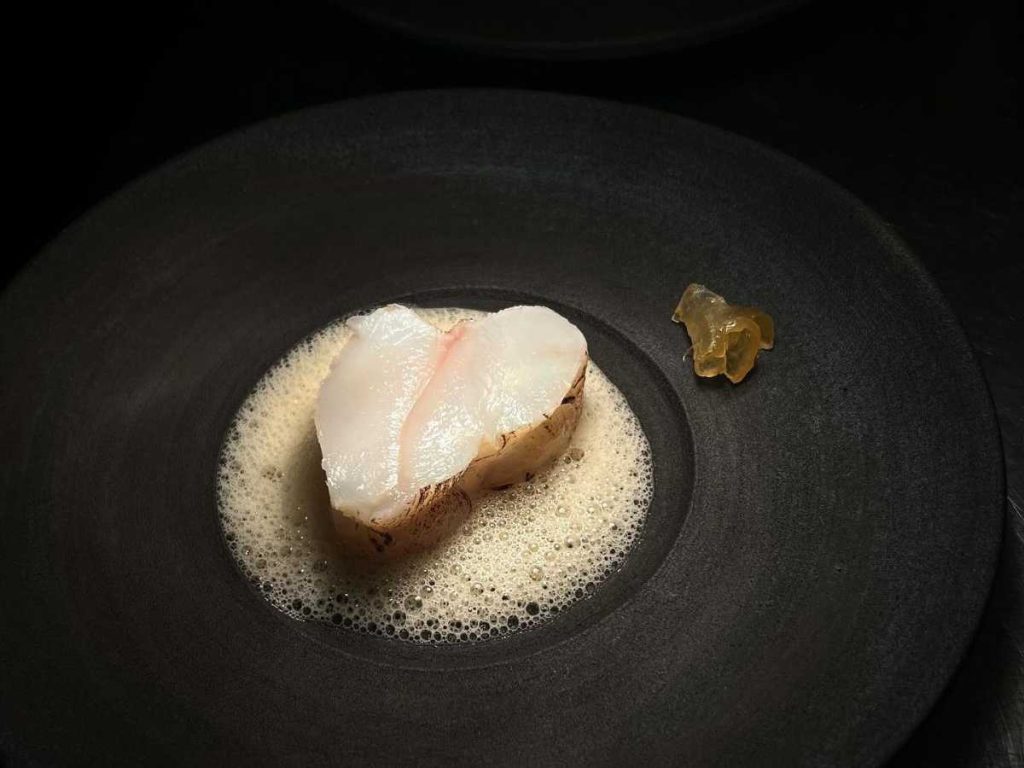
Cedar and monkfish
Forever foreigners
Has anything changed over the years? “A foreigner investing in America integrates and becomes American (at least for now!). In Copenhagen, you might achieve great success, but you’ll always be seen as a foreigner. They will always perceive you as such,” Lucia explains.
Has Tèrra changed? “We’ve aimed to make the experience more intimate: it’s just Valerio and another chef in the kitchen, and it’s only me in the dining room,” says Lucia. “And as at the beginning, most of our customers are foreign. That’s quite common: Danes don’t eat out often, which might also explain why tourism bodies have invested so heavily in gastronomy.”
Speaking of the city’s “attractiveness,” Noma has played a significant role, and its rumoured closure seems unlikely. “It’s not closing, and that’s a good thing because many Noma diners come to us afterward, even though we’re not featured in any local guides.”
Does the Green Star (Tèrra follows a rigorous zero-waste philosophy) help? “To some extent, yes—at least it reassures customers when they see it in an internationally recognised guide.”
Mixed emotions
Their emotions are mixed: gratitude toward Denmark for providing opportunities, especially on the bureaucratic side, but also a feeling of being misunderstood, tied to a lingering nostalgia for Italy. Will they ever return? Who knows.

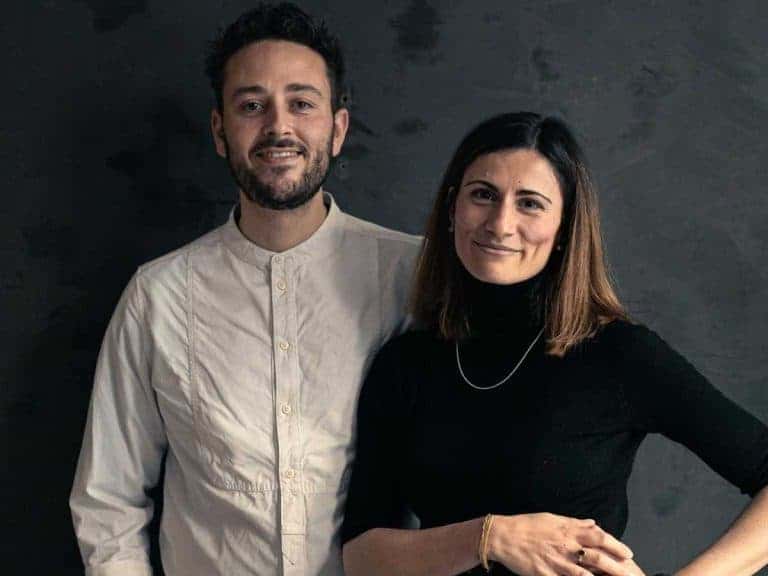
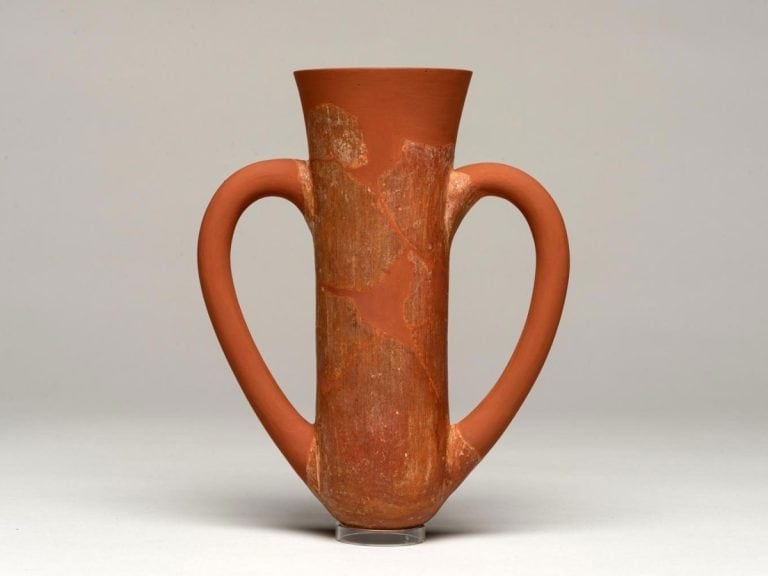 Wine was a drink of the people as early as the Early Bronze Age. A study disproves the ancient elitism of Bacchus’ nectar
Wine was a drink of the people as early as the Early Bronze Age. A study disproves the ancient elitism of Bacchus’ nectar "From 2nd April, US tariffs between 10% and 25% on wine as well." The announcement from the Wine Trade Alliance
"From 2nd April, US tariffs between 10% and 25% on wine as well." The announcement from the Wine Trade Alliance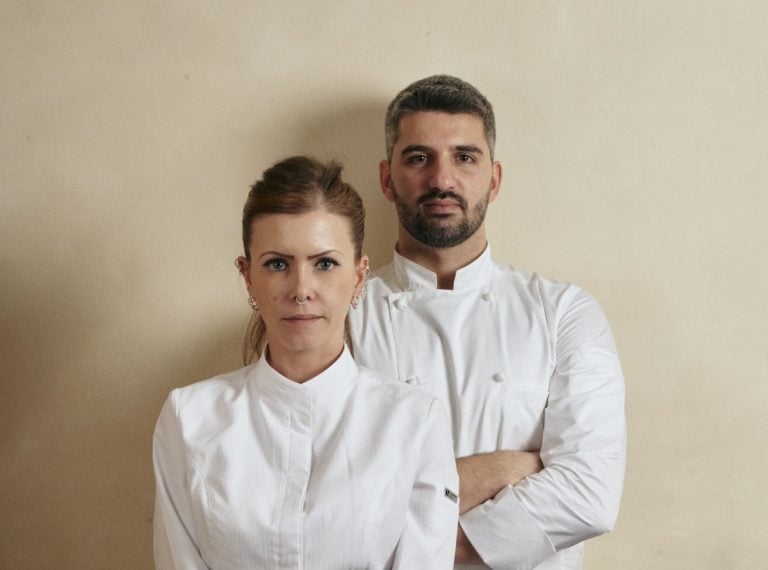 Michelin surprise: in France, the guide rewards Italian chefs
Michelin surprise: in France, the guide rewards Italian chefs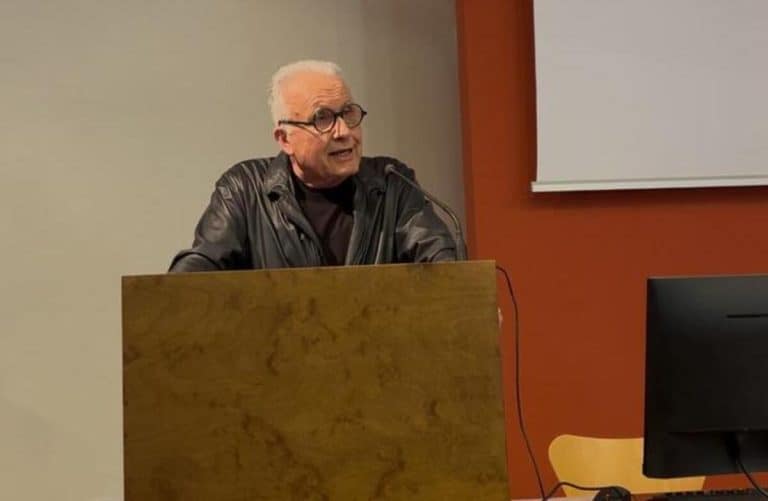 Vinitaly 2025: "Piwi should not be included in the DOCs. Dealcoholised wines? I have changed my mind." Angelo Gaja's position
Vinitaly 2025: "Piwi should not be included in the DOCs. Dealcoholised wines? I have changed my mind." Angelo Gaja's position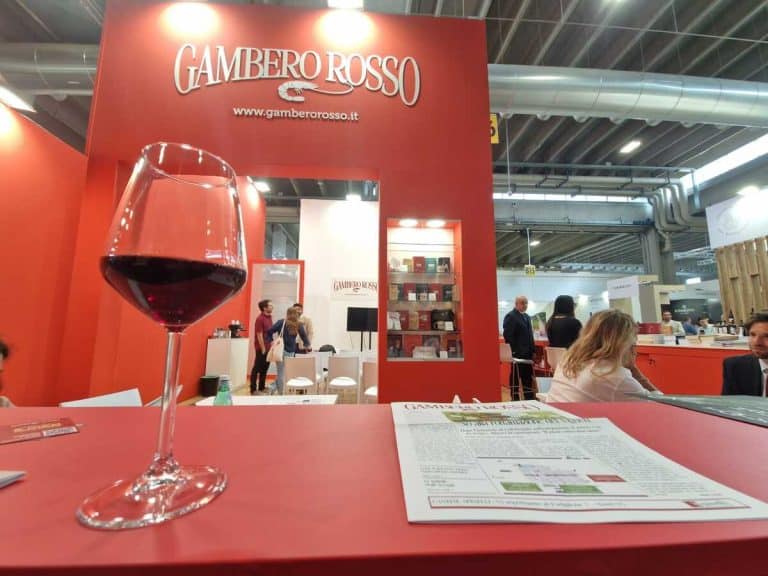 Vinitaly 2025: here are all the events by Gambero Rosso. Tre Bicchieri, debates, TV and much more...
Vinitaly 2025: here are all the events by Gambero Rosso. Tre Bicchieri, debates, TV and much more...


